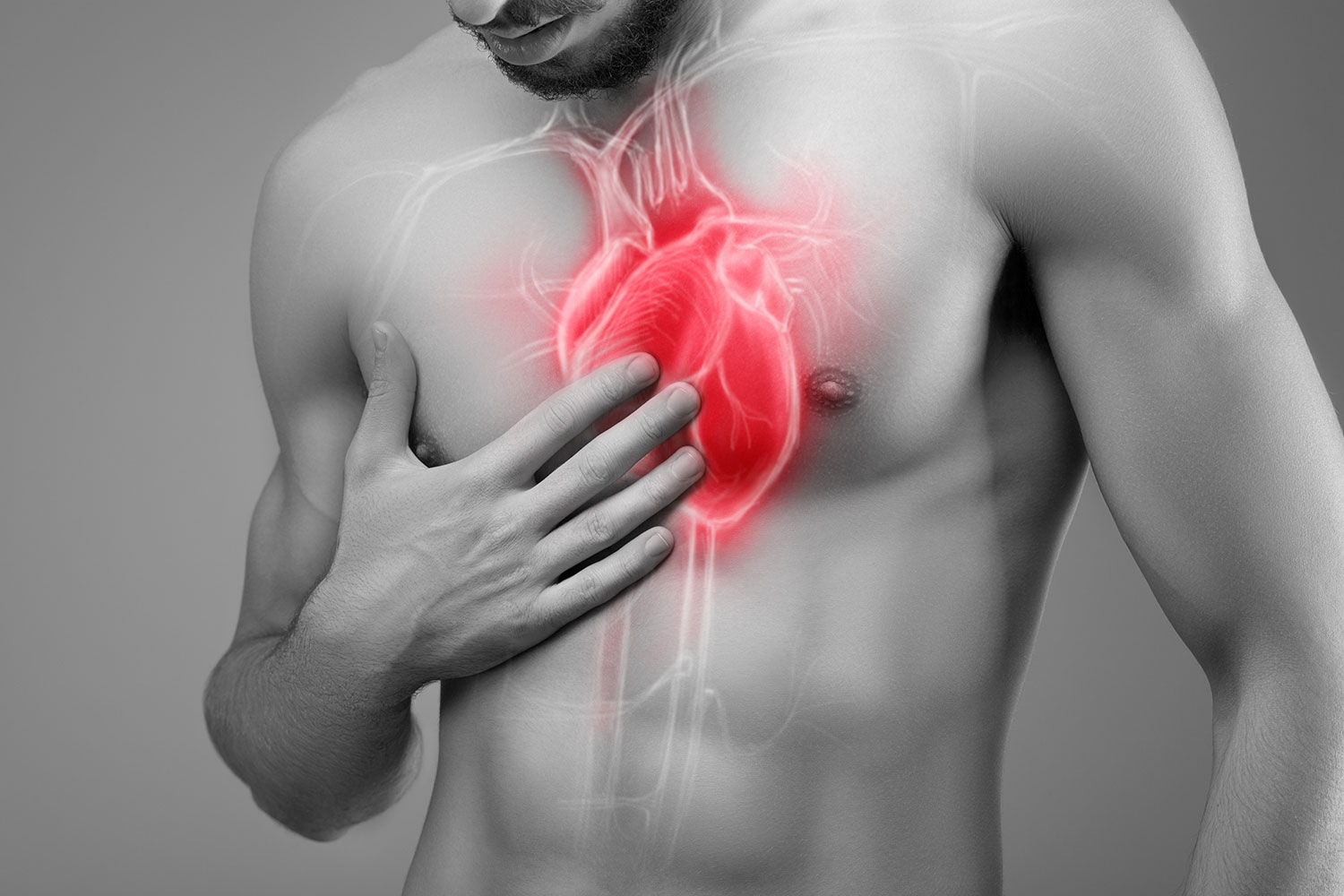Comprehending the Significance of Cardiology in Modern Healthcare Services
Cardiology plays a critical duty in modern medical care, especially as heart condition proceeds to be the leading reason of mortality worldwide. Advances in diagnostics and treatment have changed individual treatment, allowing earlier interventions and boosted results. Additionally, the shift in the direction of preventative cardiology encourages people to manage their health proactively. As modern technology continues to develop, the combination of cutting-edge services may additionally redefine cardiology's influence on public health and wellness, prompting a more detailed evaluation of arising fads and their implications.
The Frequency of Cardiovascular Disease and Its Effect on Public Wellness
Although heart disease remains the leading reason of death around the world, its influence prolongs far beyond specific patients to influence public health systems and economic situations. The high prevalence of cardiovascular disease positions a significant stress on medical care sources, necessitating raised financing for prevention, treatment, and rehab programs. Public health campaigns must address risk aspects such as excessive weight, smoking cigarettes, and inactive lifestyles, which add significantly to the increasing occurrence of heart conditions.Moreover, the financial burden related to heart problem is tremendous, encompassing not just straight clinical expenses however additionally indirect expenditures connected to shed performance and premature death. Neighborhoods face challenges in handling these costs, typically resulting in differences in medical care access and outcomes. As the population ages and lifestyle-related risks remain to intensify, the necessity for reliable cardiology interventions becomes vital. Attending to heart condition is not only an issue of private health and wellness yet also a vital public wellness top priority.
Breakthroughs in Heart Diagnostics and Imaging Techniques
Recent advancements in heart diagnostics and imaging techniques have reinvented the area of cardiology, improving the capability to monitor and discover heart conditions. Strategies such as cardiac MRI, CT angiography, and echocardiography have actually come to be significantly sophisticated, giving thorough photos of heart frameworks and features. These methods permit for the very early identification of conditions like coronary artery condition, cardiac arrest, and valvular disorders.Moreover, developments in non-invasive diagnostics, such as wearable technology and remote surveillance gadgets, have actually empowered patients and doctor. These devices assist in real-time tracking of heart rhythms and other vital signs, causing timely treatments. Furthermore, synthetic knowledge is being incorporated into imaging analysis, enhancing accuracy and performance in diagnosis.
Developments in Treatment Alternatives for Heart Issues
Recent improvements in cardiology have actually brought about significant developments in therapy alternatives for heart disease. These consist of innovative medical techniques that improve procedural results and arising medicines that supply new methods for therapy. As the field evolves, these innovations play a vital role in enhancing individual treatment and results.
Advanced Surgical Techniques
Advancements in surgical techniques have actually transformed the landscape of cardiology, providing new expect people with heart disease. Minimally invasive procedures, such as catheter-based interventions, have actually greatly reduced healing times and healthcare facility remains. Techniques like robotic-assisted surgery improve precision, allowing surgeons to navigate complex physiological structures with better precision. Developments in imaging modern technology help with real-time visualization during procedures, enhancing results. Transcatheter aortic shutoff substitute (TAVR) exhibits a development in treating aortic constriction, enabling shutoff substitute without open-heart surgery. In addition, hybrid approaches that combine catheter-based and medical techniques supply customized remedies for different heart problems. These innovative medical techniques not just boost client safety yet likewise broaden therapy options, highlighting the crucial function of advancement in modern cardiology techniques.
Arising Treatments and medicines
As the landscape of cardiology proceeds to progress, arising therapies and drugs play a critical duty in enhancing treatment alternatives for heart problems. Technologies such as unique anticoagulants and progressed lipid-lowering agents have changed the management of heart diseases, significantly decreasing patient morbidity and mortality. Additionally, the advancement of genetics therapies and regenerative medication provides appealing avenues for treating conditions previously regarded irreparable. Clinical trials are consistently exposing the efficacy of these therapies, pushing the borders of typical treatments. The integration of digital wellness innovations promotes individualized medicine, permitting for customized treatment plans based on hereditary and lifestyle factors. Collectively, these advancements emphasize the dynamic nature of cardiology, enhancing client results and redefining requirements of care in modern-day medical care.
The Function of Preventive Cardiology in Patient Care
Precautionary cardiology plays a crucial role in patient treatment by focusing on the identification of risk elements that add to heart problem. With way of life adjustment techniques and very early detection techniques, doctor can effectively minimize the incidence of cardio occasions - Dr Garcia. This proactive strategy not only enhances patient outcomes however additionally promotes lasting health and wellness
Threat Variable Recognition
While cardiovascular illness stay a leading reason for morbidity and mortality worldwide, reliable risk aspect recognition acts as a foundation of preventive cardiology. Identifying danger variables such as high blood pressure, diabetes, household, and hyperlipidemia history is vital for very early intervention. Health care experts use different evaluating approaches to examine these variables, permitting customized safety nets. In addition, comprehending a person's way of living options, such as smoking and physical lack of exercise, even more informs risk evaluations. This thorough assessment enables medical professionals to establish customized care plans focused on mitigating risks. By focusing on risk element recognition, health care systems can boost client results and reduce the general concern of cardiovascular diseases, ultimately adding to boosted public wellness techniques and source allotment.
Way Of Life Alteration Techniques
A plethora of researches highlights the essential role of way of living adjustment techniques in lowering cardiovascular condition danger. These approaches encompass nutritional adjustments, increased exercise, cigarette smoking cessation, and weight management. By embracing a heart-healthy diet regimen abundant in fruits, vegetables, whole grains, and lean proteins, people can lower cholesterol levels and high blood pressure. Routine exercise reinforces the heart and boosts general cardiovascular health. Furthermore, stopping smoking considerably minimizes the risk of heart problem and improves recuperation rates for those with status quo. Weight management even more adds to cardiovascular wellness by alleviating other risk aspects such as diabetic issues and hypertension. Carrying out these way of living changes not only promotes private well-being yet additionally serves as a foundation of preventative cardiology in patient care.
Early Discovery Strategies
Lifestyle modifications substantially add to lowering heart disease threats, however they are most effective when coupled with early discovery strategies. Precautionary cardiology emphasizes the importance of identifying possible heart concerns before they escalate into serious conditions. Strategies such as blood stress monitoring, cholesterol testing, and advanced imaging innovations like echocardiograms play essential functions in assessing cardio wellness. Biomarkers and hereditary testing also enhance the precision of early discovery, permitting tailored precautionary approaches. Routine heart risk assessments encourage doctor to interfere proactively, potentially stopping cardiovascular disease and strokes (Cardiology). By incorporating these early detection methods right into regular care, individuals can gain from timely way of life treatments and targeted therapies, inevitably improving and boosting end results quality of life
Integrating Innovation Into Cardiology Practices
As advancements in modern technology continue to reshape different areas, the integration of innovative tools and systems right into cardiology practices has actually become essential for boosting person treatment and outcomes. Telemedicine systems allow cardiologists to check individuals remotely, improving access to care while reducing the burden explanation on health care centers. Wearable devices, such as smartwatches, enable continuous heart rate tracking, notifying both physicians and individuals to possible issues in real-time. Furthermore, expert system (AI) is being used to examine substantial amounts of cardiac data, aiding in early diagnosis and customized therapy strategies. Advanced imaging methods, consisting of 3D echocardiography, enhance visualization of heart frameworks, causing a lot more exact treatments. Electronic health records (EHRs) simplify patient details administration, guaranteeing that cardiologists have prompt accessibility to critical data. With each other, these technical advancements are transforming cardiology, advertising positive management and improved health and wellness results for individuals with cardio problems.
The Importance of Individual Education and Interaction
Individual education and interaction play a critical function in the administration of cardio health and wellness. By gearing up clients with knowledge concerning their problems, treatment alternatives, and way of living changes, health care carriers encourage people to take an energetic function in their treatment. This positive strategy can bring about improved adherence to suggested drugs, nutritional adjustments, and exercise regimens, inevitably lowering the danger of complications.Engagement additionally cultivates a strong patient-provider relationship, encouraging open communication and trust fund. When people feel notified and entailed, they are much more likely to voice problems and ask concerns, which can cause better medical outcomes. Furthermore, educational resources, such as workshops or electronic systems, can enhance understanding and advertise self-management strategies. Generally, focusing on person education and engagement is essential for boosting cardiovascular wellness, improving lifestyle, and lowering health care costs associated with heart diseases.
Future Fads in Cardiology and Their Potential Impact

Often Asked Inquiries
What Lifestyle Changes Can Minimize Heart Problem Threat?
The current inquiry addresses way of living modifications that can substantially decrease cardiovascular disease risk. Dr Garcia. Taking on a balanced diet, involving in regular physical activity, maintaining a healthy and balanced weight, managing stress and anxiety, and avoiding tobacco can especially enhance cardio wellness
Exactly How Can I Recognize Early Indications of Heart Issues?
Identifying very early the original source signs of heart problems entails tracking signs such as breast discomfort, shortness of breath, fatigue, and irregular heart beat. Timely understanding of these indications can prompt needed medical evaluation and treatment for better results.
What Are the Distinctions Between Cardiologists and Cardiac Surgeons?
The differences between cardiologists and heart doctors depend on their roles; cardiologists largely manage and diagnose heart disease through non-invasive methods, while cardiac surgeons execute surgical procedures to correct structural heart issues. Each plays an important, distinct duty.

Exactly how Usually Should I Get My Heart Health And Wellness Checked?
The frequency of heart wellness checks differs based on individual threat variables. Generally, adults ought to undergo examinations each to 2 years, while those with existing problems might require more constant analyses as encouraged by healthcare professionals.
What Role Does Genetics Play in Heart Illness Risk?
Genetics considerably influences heart problem threat, with domestic patterns suggesting inherited problems. Certain genetics can predispose people to hypertension, cholesterol concerns, and various other cardio problems, highlighting the relevance of hereditary More Info screening in examining heart wellness. Heart condition stays the leading reason of fatality around the world, its effect prolongs far past individual clients to impact public wellness systems and economies. Public health initiatives have to deal with risk aspects such as weight problems, cigarette smoking, and inactive way of lives, which add significantly to the climbing incidence of heart conditions.Moreover, the economic concern associated with heart disease is enormous, incorporating not only direct clinical prices yet also indirect costs associated to lost efficiency and premature mortality. Precautionary cardiology plays an important role in individual care by concentrating on the identification of threat variables that add to heart disease. Artificial intelligence (AI) and device discovering are boosting diagnostics and individual monitoring, enabling early discovery of heart illness. The distinctions in between cardiologists and heart surgeons lie in their roles; cardiologists primarily identify and manage heart problems via non-invasive techniques, while cardiac cosmetic surgeons perform medical procedures to deal with architectural heart issues.